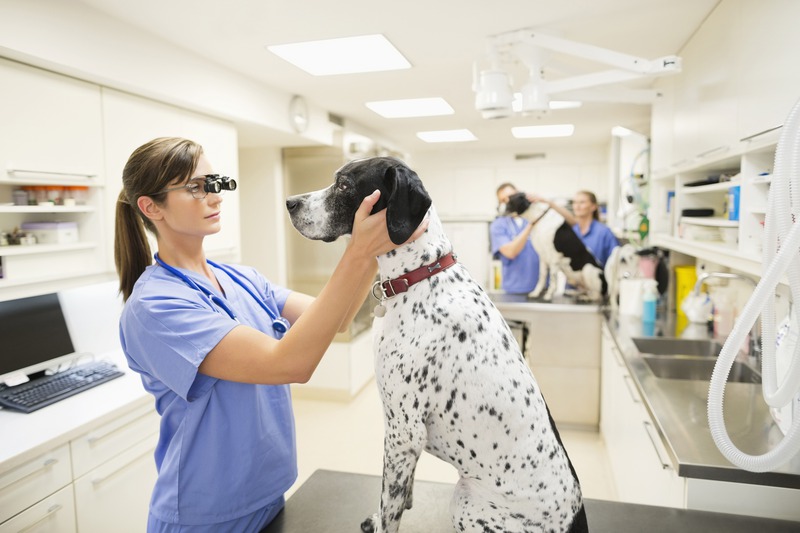Pets are cherished members of our families, bringing joy, companionship, and a unique sense of fulfillment into our lives. As responsible pet owners, we must stay vigilant about our pets’ health and well-being. Like humans, pets can experience various health issues requiring professional veterinary care.
Recognizing the signs that your pet needs veterinary care is crucial for maintaining their health and well-being. Pets often exhibit specific symptoms when they are not feeling well, and timely intervention can prevent minor issues from becoming serious health problems. Here are some common signs that indicate your pet needs to see a veterinarian:
1. Changes in Eating or Drinking Habits
A sudden increase or decrease in your pet’s appetite or water consumption can signal underlying health issues. Loss of appetite might indicate dental problems, gastrointestinal issues, or more severe conditions like kidney disease or cancer. Conversely, excessive drinking could be a sign of diabetes or kidney disease. Monitoring your pet’s eating and drinking patterns and consulting a vet if you notice significant changes are essential for early diagnosis and treatment.
2. Lethargy or Decreased Activity
If your normally active and playful pet becomes lethargic or shows a marked decrease in activity, it could be a sign of illness. Lethargy is often associated with various health issues, including infections, metabolic diseases, or pain. It is crucial to observe your pet’s energy levels and seek veterinary advice if they appear unusually tired or disinterested in activities they usually enjoy.
3. Vomiting or Diarrhea
Occasional vomiting or diarrhea can happen due to minor digestive upsets. However, frequent or severe vomiting and diarrhea are concerning and warrant veterinary attention. These symptoms can indicate gastrointestinal infections, ingestion of toxic substances, or more severe conditions like pancreatitis or intestinal blockages. Persistent vomiting or diarrhea can also lead to dehydration, making prompt veterinary care essential. If you experience these symptoms in your pet, consult a veterinary surgeon in Palmyra, PA for proper diagnosis and treatment.
4. Respiratory Issues
Difficulty breathing, coughing, wheezing, or excessive panting are signs that your pet may have respiratory problems. These symptoms could be due to allergies, infections, heart disease, or more severe conditions like asthma or pneumonia. If your pet shows any signs of respiratory distress, it’s essential to seek veterinary care immediately.
5. Changes in Urination
Changes in your pet’s urination habits, such as increased frequency, straining, blood in the urine, or accidents in the house, can indicate urinary tract infections, bladder stones, kidney disease, or diabetes. These conditions can be painful and potentially life-threatening if not treated promptly, so a visit to the vet is crucial if you notice any urinary changes.
6. Skin and Coat Problems
Unusual hair loss, excessive scratching, redness, swelling, lumps, or sores on your pet’s skin indicate possible skin conditions, allergies, parasites, or infections. Persistent skin issues can lead to discomfort and secondary infections. A veterinarian can diagnose the cause of these skin problems and provide appropriate treatments to alleviate your pet’s symptoms. Additionally, ensuring your pet is up to date with routine care, such as dog vaccinations in Palmyra, PA, can prevent many health issues and promote overall well-being.
7. Behavioral Changes
Sudden changes in behavior, such as increased aggression, anxiety, withdrawal, or changes in sleeping patterns, can be signs of underlying health problems or pain. Behavioral changes can also indicate cognitive issues in older pets. Consulting a veterinarian can help determine if these changes are due to medical issues or other factors.
8. Lameness or Difficulty Moving
If your pet is limping, showing signs of pain when moving, or having difficulty standing up or lying down, it could be a sign of injury, arthritis, or other musculoskeletal issues. Lameness or mobility problems should not be ignored, as early intervention can help manage pain and improve your pet’s quality of life.
9. Swelling or Bloating
Visible swelling or bloating, especially in the abdomen, can indicate severe conditions like gastric torsion (bloat), organ enlargement, or internal bleeding. Abdominal swelling often requires immediate veterinary attention to diagnose and treat the underlying cause.
10. Eye and Ear Issues
Redness, discharge, swelling, squinting, or cloudiness in the eyes, as well as persistent scratching, head shaking, or foul odor from the ears, are signs of eye and ear infections or other issues. Eye and ear problems can cause significant discomfort and, if left untreated, can lead to more severe complications or permanent damage.
11. Unexplained Weight Loss or Gain
Significant weight changes without a change in diet or exercise can indicate various health issues, including dental problems, metabolic disorders, endocrine diseases, or cancer. Monitoring your pet’s weight and seeking veterinary advice if you notice unexplained changes is essential for maintaining their health. For example, a cat dentist can help identify dental problems affecting your feline’s weight and overall well-being.
12. Persistent Bad Breath
While occasional bad breath is expected, a persistent foul odor can indicate dental disease, oral infections, or gastrointestinal issues. Dental problems can lead to more severe health issues if left untreated, so regular dental check-ups and addressing persistent lousy breath are essential for your pet’s overall health.
Wrapping Up
Recognizing the common signs that your pet needs veterinary services is essential in maintaining their health and well-being. From noticeable behavioral changes such as lethargy, excessive licking, or scratching to more apparent physical symptoms like vomiting, diarrhea, or difficulty breathing, these signs can serve as crucial indicators that veterinary intervention may be needed. Early detection and timely response to these symptoms can prevent more severe health issues and improve the quality and longevity of your pet’s life.

